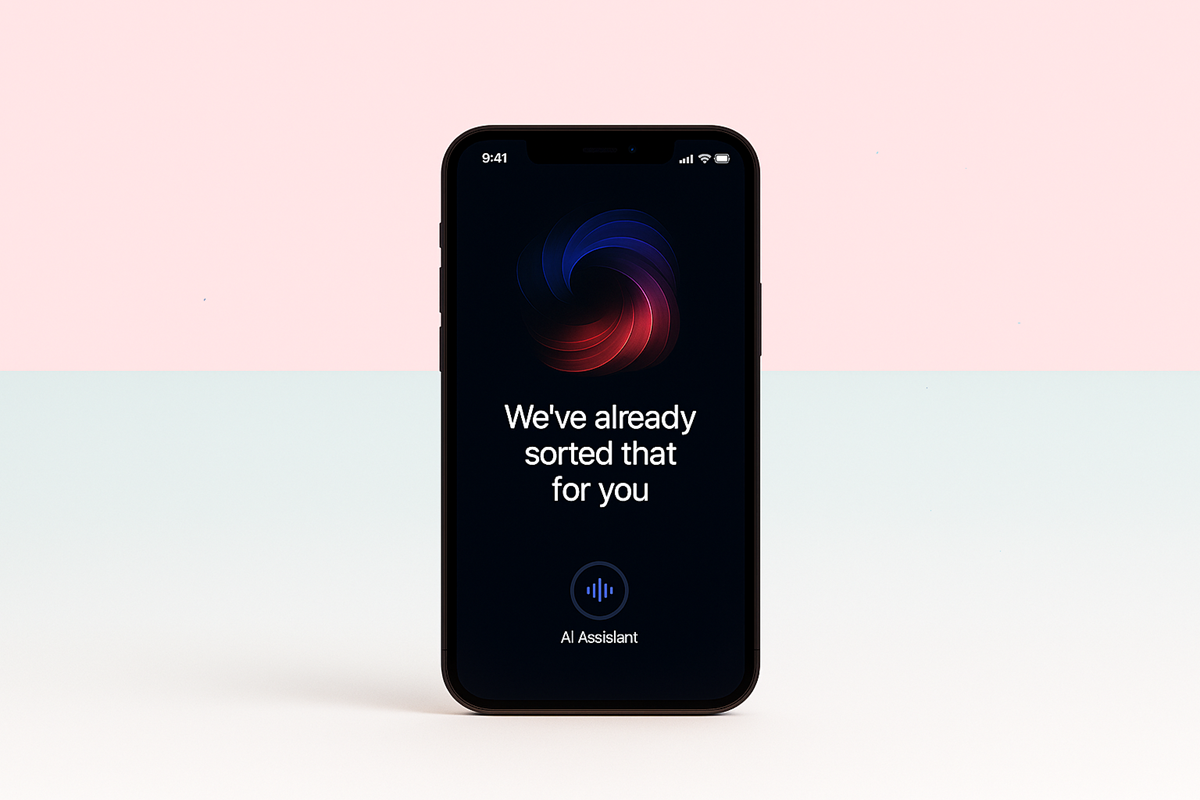September 24, 2025
Anticipate, Adapt, Deliver: The New Rules of AI in Customer Experience

Picture this: you reach out to customer service, only to be greeted with, “We’ve already sorted that for you.” It’s an effortless experience that feels almost too good to be true—but it’s exactly where customer service is heading, thanks to advances being driven by Artificial Intelligence (AI) and the ability to anticipate customer needs.
This year, AI will break barriers, allowing customer experience to shift from reactive to predictive or proactive. From virtual agents that feel almost human to AI hubs transforming raw data into actionable insights, the next wave of customer experience is here, and it’s smarter, faster, and surprisingly intuitive.
This transformation goes beyond surface-level improvements; AI is reshaping how businesses approach customer experience at its core, and the technology is creating a seamless, intuitive ecosystem that meets and exceeds customer expectations. Here are the three areas that RingCentral‘s John Finch, VP Product Marketing, sees it having the biggest impact.
AI-Enhanced Resilience in Customer Experience Management
We’ve already seen the impact of AI embedded within the customer experience function, for example personalised recommendations that enhance customer satisfaction, or chatbots to help with customer queries. AI will play an integral role building resilience in customer experience operations, particularly in crisis management. In the face of disruptions like global outages, AI can help deliver continuity of service by autonomously handling customer queries and tasks.
AI-driven systems will also be able to access backup data and provide customers with real-time updates even when traditional systems are down. This proactive approach will reduce customer frustration during high-pressure situations, maintaining service levels and trust.
As part of this, many businesses will design AI to seamlessly integrate with human agents, ensuring that when human intervention is needed, those agents are able to be more efficient and stay well-informed. During disruptions, live agents can then focus on complex cases, leaving AI to handle more routine or transactional tasks.
This resilience layer will not only improve service during outages but will also enhance overall customer experience by ensuring a consistent, high-quality experience across all touchpoints, at any time, under any circumstances.
Anticipate the Evolution to Intelligent Virtual Agents (IVAs) in CX
This year, IVAs will step out of the shadows of traditional interactive voice response (IVR) systems into the spotlight as the new face of customer service. IVAs will become indispensable problem-solvers, driving seamless, human-like interactions that transform the way businesses connect with their customers.
Leveraging advanced AI, IVAs won’t just access knowledge bases but will also take real-time action. That might be updating customer records or executing transactions, such as initiating a refund or changing an order. Imagine an AI engine that can quickly take in all that information and use that data to anticipate your needs. By the time you’ve made contact—via phone, chat, or text—the IVA is already moving from putting out fires to lighting the way for a seamless, proactive experience. This will make customers feel confident in engaging with IVAs, as they will deliver solutions with the same efficiency and clarity previously expected only from live agents.
For businesses, this evolution will allow live agents to dedicate their time to more nuanced, value-driven tasks like building relationships, selling products, or tackling more complex issues. AI systems will constantly learn from interactions across the enterprise, not only reading data but writing back into knowledge bases to improve future responses and customer experiences.
The future of omnichannel customer service will see IVAs become central to the CX strategy, enabling organisations to ensure seamless, high-quality experiences across all touchpoints, from apps and calls, to physical interactions. While customers may need time to adapt to the functionality of these systems, their deployment will allow businesses to meet the growing demand for faster, 24/7 customer support, without compromising on service quality.
AI Will Become A Data Hub For Customer Experience
Customer and organisational data will also transform the way businesses deliver customer service, and AI will emerge as the central hub for this. As conversations take place across channels—contact centres, digital apps, and even internal meetings— each interaction will be transcribed and analysed, converting them into actionable insights that help businesses evolve and anticipate customer needs with increased accuracy.
When product, marketing, and operations have access to that wealth of data, they can use those insights to drive improvements in product development, operational efficiency, customer satisfaction and employee engagement. AI will synthesise feedback in real-time, allowing businesses to make data-driven decisions to refine processes and anticipate customer needs with greater accuracy.
For customer service, this looks like AI-powered systems providing live agents with real-time suggestions, reducing resolution times and increasing accuracy. Going one step further, businesses will leverage AI-driven tools like automated quality management to monitor and improve interactions at scale, driving consistency across touchpoints.
Using AI to make customer satisfaction metrics (e.g., Net Promoter Scores) more granular and comprehensive, allows organisations to deliver service excellence at every touchpoint. This approach will empower businesses to evolve CX from reactive problem-solving to a proactive, data-driven strategy.
CX Success in 2026
The businesses that will see success in 2026 won’t be those pursuing AI for the sake of it. Rather, they’ll be the ones deploying AI fit for purpose, with an underlying and continued focus on security, trust, and privacy. AI should be built into products, quietly revolutionising daily interactions, smoothing every rough edge, and making life simpler, faster, and smarter for everyone. Success will come to those who understand that great AI is like great design—you only notice it when it’s missing.




